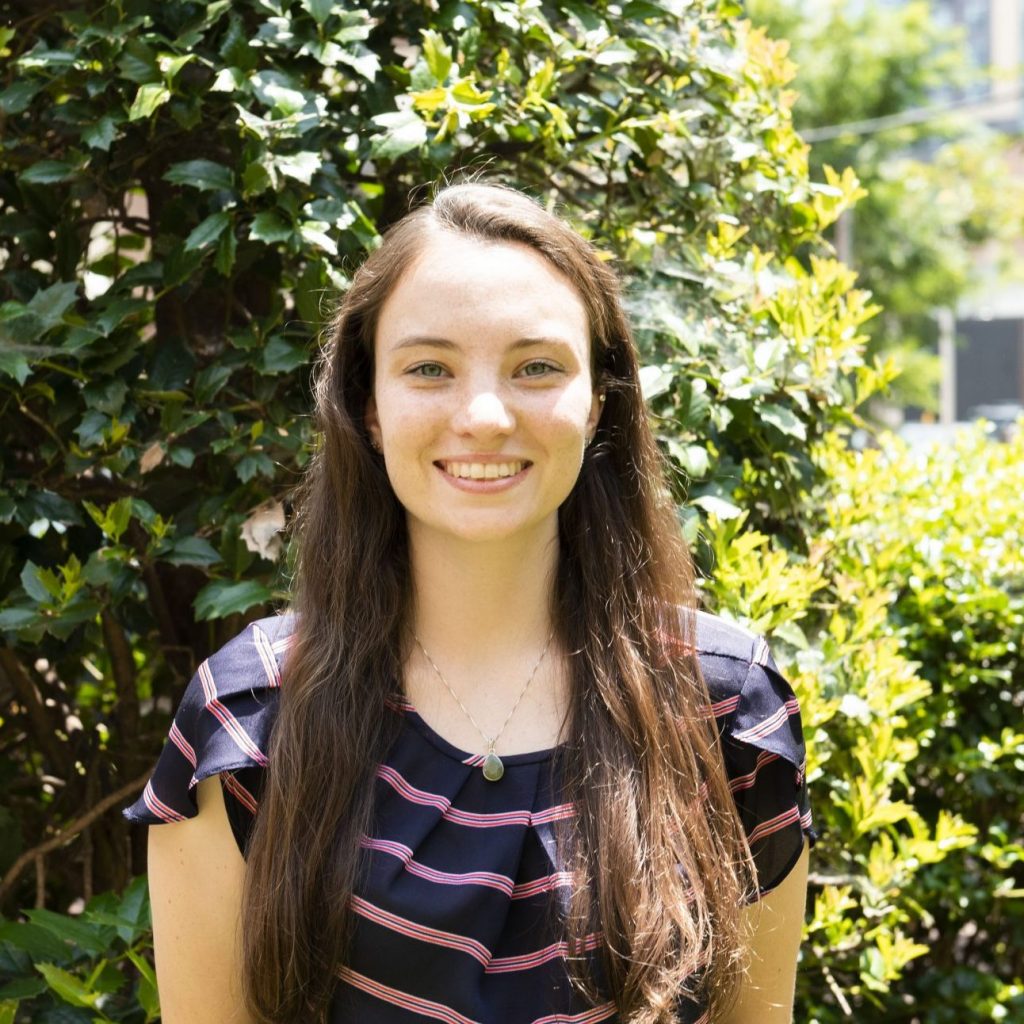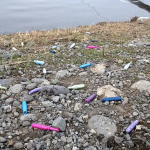The Recycling Myth: Paper Coffee Cups
By Emily Bernard and Meera Shroff
Do you recycle your paper coffee cups?
Due to the generous support of local businesses, Bethesda Green recently installed new recycling bins throughout Bethesda, and with the launch of this program we thought it would be helpful to provide information about some common items that are mistaken for recyclable material. One of the most common recycling myths is that paper coffee cups are recyclable. The answer is, not always, and it depends on the jurisdiction.
Paper coffee cups are lined with a thin layer of plastic or wax, depending on the brand, that allows the cup to hold hot liquids and maintain its shape. This thin layer of non-paper material, which only accounts for a mere 5% of the cup, jams recycling machines. Although some recycling plants could separate the materials, the process is too costly and lengthy to be reasonable. Most recycling stations, therefore, cannot recycle coffee cups, and they end up in landfills.
Coffee cups are recyclable through Montgomery County’s residential system, but not in the street level bins in Downtown Bethesda. The reason for this lies in the different types of recycling in Montgomery County: dual stream recycling. The residential system is dual stream, meaning that residents must separate plastics and paper into two separate bins. This reduces contamination and allows paper coffee cups to be recycled in Montgomery County’s recycling station but requires greater effort on the part of the consumer and is more costly to transport. However, because the street level recycling bins in Downtown Bethesda are comingled materials and lack the option of sorting the paper from the plastic. So, the bins are not designed handle coffee cups.
Producing and throwing away coffee cups contributes to climate change and increases waste. Annually, 20 million trees are cut down just to make coffee cups. Deforestation contributes to habitat loss and reduces the number of trees that take in carbon dioxide, which worsens the greenhouse effect. In addition, when the lining is made from polyethylene, a plastic, thousands of barrels of petroleum are used to make the lining.
If you are not sorting paper and plastic recycling, make sure to throw your cup away in the trash in order to avoid contaminating your recycling. To reduce your waste, bring a reusable container to places like Starbucks to get your coffee, instead of buying a new one each time. And let your local friends and family know not to drop off their paper coffee cups in the trash.
Resources:
Albeck-Ripka, L. (2018, May 29). 6 Things You’re Recycling Wrong. The New York Times. https://www.nytimes.com/2018/05/29/climate/recycling-wrong-mistakes.html.
BBC. (2018, April 17). Plastic recycling: Why are 99.75% of coffee cups not recycled? BBC News. https://www.bbc.com/news/science-environment-43739043.
Can Paper Coffee Cups be Sustainable? World Centric. https://www.worldcentric.com/notree/.
Department of Environmental Protection Montgomery County, Maryland. Recycling Rate and Tons Disposed by Calendar Year. Recycling Rate – Montgomery County, Maryland. https://www.montgomerycountymd.gov/sws/programs/recycling-rate.html.
Montgomery County MD Department of Environmental Protection. Material Flow Diagram CY2017.
Why Can’t You Recycle Paper Coffee Cups? Recycle Coach. (2019, December 19). https://recyclecoach.com/residents/blog/why-cant-you-recycle-paper-coffee-cups/.
Wiener-Bronner, D. (2019, February 27). Forget plastic straws. Starbucks has a cup problem. CNN Business. https://www.cnn.com/interactive/2019/02/business/starbucks-cup-problem/index.html.
About the Authors:
Emily Bernard, Program Associate
Emily graduated in December from the University of Maryland with a Bachelor’s in Government and Politics, and a minor in Sustainability Studies. She is passionate about issues like reducing single-use plastic consumption, recycling as much as possible, and recognizing the impact of your personal carbon footprint.
Meera Shroff, Bethesda Green Environmental Leader
Meera is a Walt Whitman High School Senior. She is committed to combating the broad, daunting issue of climate change and its environmental repercussions. She believes working locally is essential to protecting the earth and building a better future.









